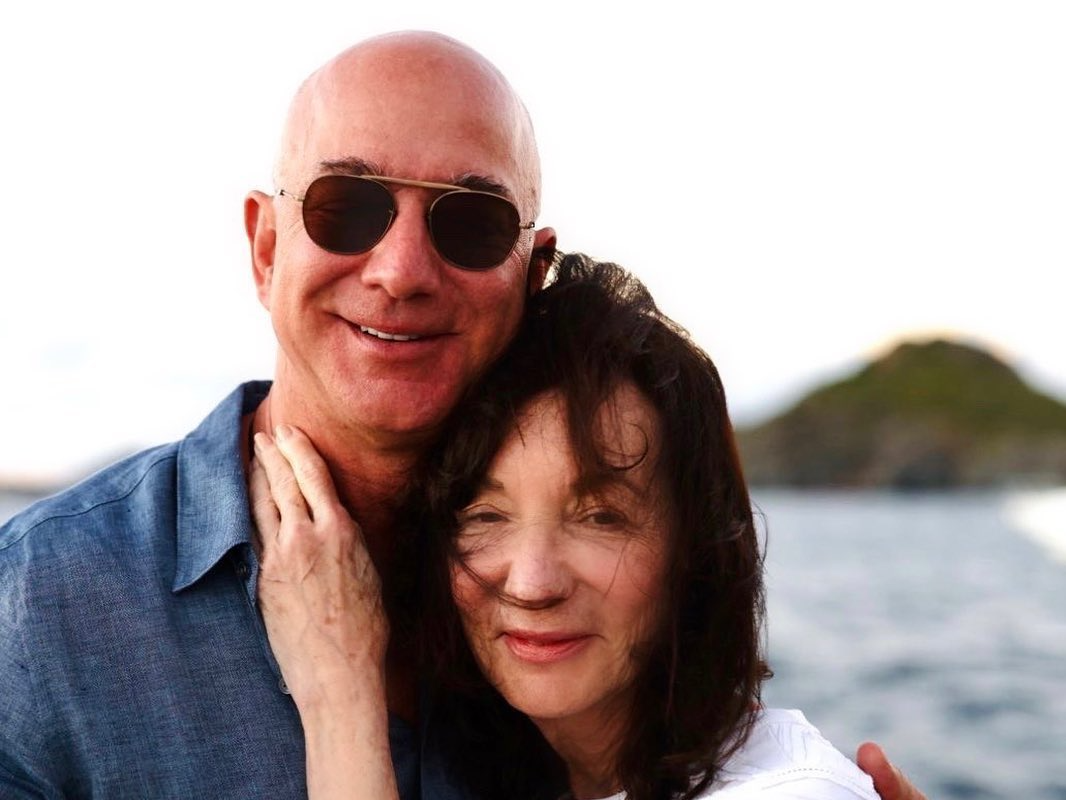Jeff Bezos Is Attempting To Live Forever

What if aging wasn’t an inevitable part of life, but a challenge waiting to be solved? For Jeff Bezos, the quest to defy aging isn’t just a dream—it’s a bold investment. Through his involvement in Altos Labs, a company dedicated to reversing the effects of time, Bezos is venturing into uncharted scientific territory. Alongside some of the brightest minds in biotechnology, the Amazon founder is funding research that could one day transform how we understand life itself.
The story of Altos Labs isn’t just about science; it’s about ambition, innovation, and humanity’s timeless desire to push beyond its limits. But as Bezos and others pour resources into this groundbreaking work, a larger question looms: Can technology rewrite the rules of human existence, or does the pursuit of immortality come with a cost?
The Origins of Altos Labs
 Image source: Pexels
Image source: Pexels
Altos Labs began as an idea discussed among some of the world’s leading scientific minds. In October, Yuri Milner, a billionaire tech investor and philanthropist, hosted a private conference at his estate in Los Altos Hills. The event brought together researchers to explore one of science’s most profound questions: Can aging be reversed? Among the participants were experts in biotechnology, longevity, and molecular biology, all eager to uncover the possibilities of rejuvenation.
What started as a philanthropic effort soon evolved into a bold business venture. Milner’s foundation initially provided substantial grants to longevity researchers, fueling curiosity-driven studies. However, the vision quickly expanded when Jeff Bezos and other tech moguls recognized the potential impact of the work. Altos Labs was incorporated with one goal: to accelerate the pace of discovery in reversing aging.
With over $270 million in funding secured, the company recruited top-tier scientists and established research hubs in the United States, the United Kingdom, and Japan. This marked the beginning of an ambitious journey to explore how biological reprogramming could reshape the future of human health and longevity.
Jeff Bezos and Altos Labs: A Vision for Immortality
Jeff Bezos, a name synonymous with Amazon’s global empire and unprecedented influence, has now turned his attention to one of humanity’s most audacious aspirations: the conquest of death itself. In 2021, Bezos became a primary investor in Altos Labs, a biotech startup focused on the groundbreaking science of biological reprogramming. This emerging field seeks to unlock the secret to reversing the aging process at a cellular level, potentially making age-related decline a thing of the past. It’s a vision that blends the ambitions of cutting-edge science with the almost mythical pursuit of immortality.
Altos Labs has assembled a formidable team of scientists, drawing some of the brightest minds from fields like cellular rejuvenation and regenerative medicine. Their goal is ambitious: to develop therapies that could restore cells to a youthful state, effectively undoing the damage caused by aging. While the specifics of their progress remain closely guarded, the company’s founding mission has sparked global curiosity. For Bezos, whose career has been defined by pushing boundaries, this venture represents the next logical step in his journey—one that moves beyond e-commerce and space exploration to redefine the limits of human existence itself.
Although Bezos has not publicly commented in depth about his motivations for funding such a venture, his actions speak volumes. His investment—alongside that of other tech billionaires—signals a belief in the transformative power of these technologies, not just for extending life but for altering the very trajectory of humanity. With Altos Labs operating in a veil of secrecy, it’s impossible to know how close they are to real breakthroughs. However, one thing is clear: Bezos’ pursuit of forever is not just a personal ambition but a glimpse into a future where the power to outwit death lies in the hands of the privileged few.
The Science of Living Forever
At the heart of Jeff Bezos’ pursuit lies a fascinating and rapidly evolving field: biological reprogramming. This cutting-edge technology aims to reverse aging by “reprogramming” the instructions within cells, essentially teaching them to regenerate and behave as if they were young again. It’s an idea rooted in the groundbreaking work of Nobel Prize-winning scientist Shinya Yamanaka, who discovered a way to reset mature cells into a more embryonic, versatile state. Now, researchers at Altos Labs and similar institutions are exploring how to harness this discovery to extend human life spans.
Biological reprogramming operates on a deceptively simple principle: aging is not a one-way street. Scientists have observed that many of the changes associated with aging—like DNA damage, cellular stress, and the breakdown of regenerative processes—might be reversible under the right conditions. By reactivating dormant genes or pathways within cells, researchers believe they can restore the body’s ability to heal and renew itself. If successful, this could lead to treatments that not only halt aging but also reverse diseases like Alzheimer’s, cancer, and heart disease, fundamentally altering the human experience.
Yet, this science is still in its infancy, and its potential remains as tantalizing as it is uncertain. While early experiments on animals have shown promising results—such as improved organ function and extended lifespans—applying these techniques to humans is far more complex. Ethical considerations, unknown side effects, and the sheer unpredictability of altering such intricate biological systems are just a few of the hurdles that remain. Nevertheless, the investment from figures like Bezos ensures that progress in this field will likely accelerate, bringing humanity closer to a future where the question of living forever may shift from “if” to “how.”
Ethical Dilemmas: Who Gets to Live Forever?
 Image source: Pexels
Image source: Pexels
As awe-inspiring as the prospect of reversing aging might be, it comes with significant ethical challenges. One of the most pressing questions is who would have access to life-extending technologies if they were ever perfected. Would immortality become an exclusive privilege of billionaires like Jeff Bezos, or would it be accessible to the broader population? In a world already defined by stark inequalities, the idea of eternal life for a wealthy elite raises concerns about deepening societal divides.
Consider the implications: if aging becomes a curable condition for those who can afford it, what happens to the rest of humanity? Would resources be redirected away from pressing global issues—such as poverty, climate change, and public health—in favor of prolonging the lives of a select few? Critics argue that the pursuit of immortality may be a reflection of hubris, prioritizing individual desires over the collective well-being of society. The fact that figures like Bezos, with their near-limitless wealth, are spearheading these efforts further underscores the imbalance in who benefits from scientific progress.
Moreover, the societal consequences of immortality itself are complex and far-reaching. If people could live indefinitely, how would that impact global population growth, resource distribution, and intergenerational dynamics? Who decides when enough is enough? Philosophers and ethicists have long debated the morality of altering the natural course of life and death, and the answers remain elusive. Bezos’ pursuit of eternal life forces us to confront these questions head-on, inviting reflection on whether the power to defy mortality is a gift—or a Pandora’s box.
The Bigger Picture: What Does It Mean to Truly Live?
Jeff Bezos’ quest to extend life raises a deeper, more philosophical question: what does it truly mean to live? For centuries, thinkers, poets, and spiritual leaders have argued that life’s fleeting nature gives it meaning. Would the ability to live indefinitely dilute the essence of what it means to exist? Or would it open new doors to explore the depths of human potential, free from the constraints of time?
The pursuit of immortality forces us to confront our relationship with life and death. Many of us spend our days chasing goals, accumulating possessions, or striving for recognition, often losing sight of what matters most: the connections we form, the love we give, and the legacy we leave behind. Would living forever change these priorities? Or would it magnify them, making each decision and every action all the more significant? For someone like Bezos, whose ambitions have already reshaped industries and lifestyles, the stakes of “eternal life” carry profound implications—not just for him but for humanity at large.
At its core, the discussion about extending life is also about purpose. Is living forever the ultimate goal, or should we instead focus on living deeply, fully, and meaningfully? As Bezos invests in technologies that could redefine human existence, his journey serves as a mirror for our own lives. It challenges us to ask: Are we truly living, or merely existing? Whether we measure our days in decades or centuries, the way we choose to spend our time is what gives our lives value. Bezos’ quest may be a story about immortality, but its lessons are grounded in what it means to live with purpose today.
Featured image source: Jeff Bezos on Instagram
Loading...






